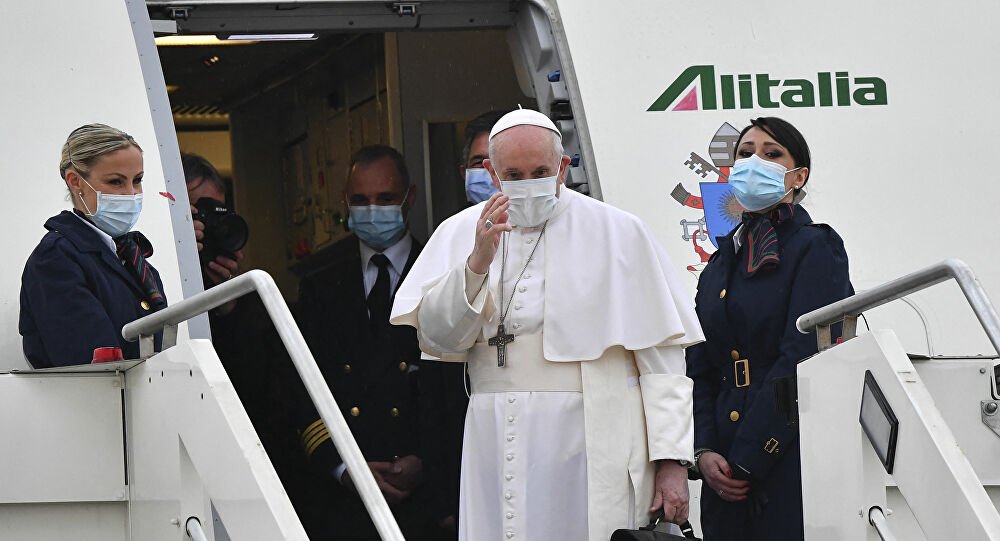Pope Francis, “Messenger of Peace” Ahmed Bin Mohamed Al Jarwan, President, Global Council for Tolerance and Peace
We value the visit of Pope Francis to Iraq, which carries with it a message of love, peace, tolerance and support to the Iranian people who have suffered from the curse of wars, terrorism, divisions and devastation for many years. We hope that it will be the beginning of hope for the reconstruction of Iraq, and we strengthen and support those important visits adopted by the Global Council for Tolerance and Peace in various countries of the world.
On his visit today to Iraq, Pope Francis takes a new step of peace towards being a “messenger of peace for the tired,” as he doesn’t seek to encounter the strongest of the world but rather goes to the weak ones. He declared that he is going to Iraq as a pilgrim carrying a message of love to the wounded peoples under the weight of wars, divisions and terrorism.
This message is considered as an extension of the “Human Fraternity document for World Peace and Coexistence” which he signed with Al-Azhar Sheikh Ahmed Al-Tayeb, in Abu Dhabi, in February 2019.
The Pope’s meeting with Imam Ali al-Sistani in Najaf is the first meeting that brings together the pope and a Shiite reference of this level, after his meeting with the Sheikh of Al-Azhar, the largest Sunni religious authority, and certainly it will have an important impact on the country that includes a Shiite majority, and an impact that extends its effect to the world to emphasize the importance of communication and dialogue for peace, tolerance and coexistence, and that we, with different religions and beliefs, are in urgent need to support each other because we live in one world.
Mesopotamia is considered the first cradle of the formation of the religious idea of ancient civilizations, and we believe that the visit of Pope Francis may be reflected positively, in terms of motivating those interested to provide logistical and material support, especially as it coincides with the start of the reconstruction of the destroyed archaeological and historical churches in Mosul and Baghdad.


